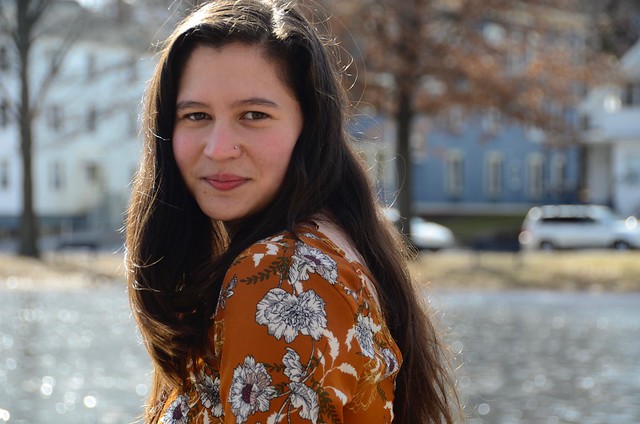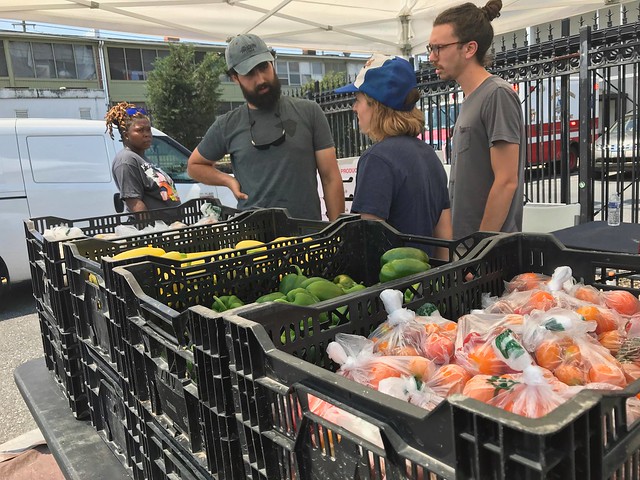
The face of poverty has often been associated with the starving child in the slums of New Delhi, India or streets of Port-au-Prince, Haiti. While this is the reality for many children across the developing world, rural and urban poverty is often overlooked in developed countries, such as the United States.
My perspective on the topic of hunger changed while serving as a Wallace-Carver Fellow at the United States Department of Agriculture (USDA). This fellowship is a partnership effort between the USDA and The World Food Prize, which supports many youth education programs to inspire the next generation to end hunger.
As a Clark University undergraduate, I am among more than two dozen college students who are serving summer Wallace-Carver Fellowships at USDA research centers and offices nationwide. We fellows help analyze agricultural and economic policy; assist with food, nutrition and rural development programs; and take part in field and laboratory-based research.
This is how I came to work at USDA’s Office of Partnerships and Public Engagement (OPPE), which helps raise awareness of USDA resources for farmers, ranchers, communities both rural and urban. OPPE is tasked with partnering our public and private sectors to work with government entities on local efforts of pooling knowledge, information, and resources together. Throughout my internship, I conducted research, attended site visits, and assisted OPPE to better serve America’s agricultural community and facilitate greater access to USDA programs.
These experiences shifted my perception, as I learned that poverty does not escape our local communities. Despite our wealth, there are pockets of poverty in both metropolitan and rural areas. I witnessed substantial efforts to address the needs of our communities at a local level.
One such community initiative is paving the way for sustainable and innovative best practices for local food security.
Pop Up Food Hubs
In July, I visited Community Foodworks (CFW), a local non-profit based in Columbia Heights, Washington, D.C. Community Foodworks was recently awarded a three-year, $300,000 grant from Agricultural Marketing Service (AMS) to promote the creation of Pop-Up Food Hubs. A food hub connects local farmers to consumers by managing the aggregation, distribution, and marketing of the food.
During my visit, the program manager outlined the day to day business functions as both a Food Hub and farmers market. CFW collects from a variety of individual and institutional customers, such as day-care centers, nursing homes, businesses, and local schools.
We watched as six staff members assembled a small tent and two tables in the parking lot of the Unity Health Care Center on Minnesota Avenue, Washington, D.C. As soon as the farmer arrives, the staff created an assembly line, separating the fruits and vegetables to fulfill the customer orders. Within 30 minutes, the team completed all 20 orders for the various institutions, projected to feed hundreds of people per order. After all the bags were assembled, staff members used their cars to deliver the orders. This delivery approach reduced a significant transportation cost and created an effective food distribution model.
While the packages were delivered, farmers set up for the local food market, which is heavily attended each Thursday afternoon.
This model increases the amount of local, healthy foods in low-come communities, particularly targeting customers who use Supplemental Nutrition Assistance Program (SNAP), and a special supplemental program for Women, Infants, and Children (WIC). A subsidized Community Supported Agriculture (CSA) program ensures that people from all walks of life can benefit from federal food assistance.
I witnessed the positive effects of combining Pop-Up Food Hubs and farmers markets, which promotes an innovative model of local food distribution and supplementation of existing USDA food assistance programs.
As a USDA Wallace-Carver Fellow, I am proud to know that this fellowship was named for Henry A. Wallace and George Washington Carver, two American agricultural science and policy leaders who championed hunger prevention. It is rewarding to take part in USDA efforts to address hunger in local communities.

